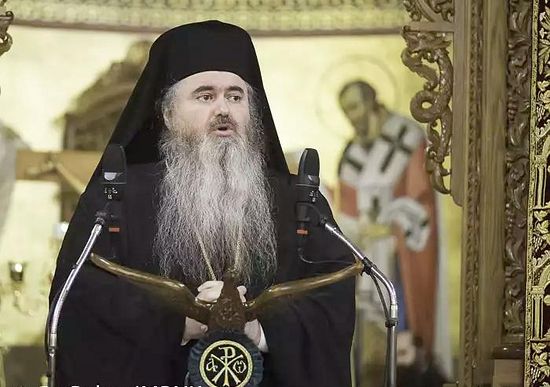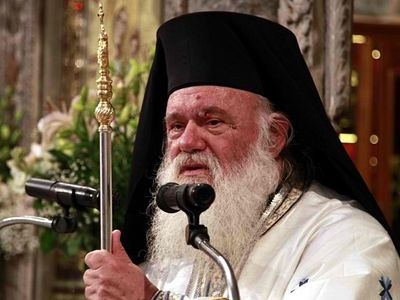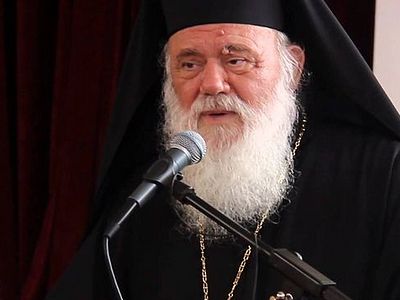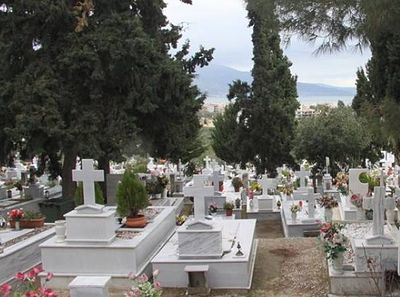Athens, January 21, 2016
Hierarchs of the Church of Greece have commented on the decision of local authorities to open a crematorium in the city of Patras, reports AgionOros.

Bishop Chrysanthos stressed that “the war against the Church is now being waged openly. Cremation and other manifestations of the new morality (for example, “free cohabitation”, civil partnerships and so on) have nothing to do with the Orthodox tradition of Greece”.
***
Metropolitan Justin of Kalamaria, commenting on the decision to open the crematorium, said: “Many claim that the Church should care for people’s souls only and leave the body alone. That is not true: the Church cares for the whole human being who is saved in his or her psychosomatic unity, gaining the Divine grace.
The body is holy and sacred for the Church, because it was created by God! The Lord Himself took this body, resurrected and ascended to the Heavens in it. Can there be a greater glory for the body?”

In the hierarch’s view, “cremation of the departed indicates nihilism, unbelief and disrespect, first of all, for the human personality and, therefore, for the Creator”.
Metropolitan Justin expressed the opinion that the main danger for Greece is not in the economic crisis, but in the spiritual and moral one: “Some forces want to goad us into moral lapse. And we, Orthodox Christians, are obliged to oppose this destructive force which is striving to raze everything to the ground. We need to oppose those who are seeking to impose alien morals on us, to enslave our small country with foreign ideology.”
***
Metropolitan Chrysostomos of Patras in his address to the flock emphasized the inconsistency of cremation with the teaching of the Orthodox Church: “God created man in His own image, as a psychosomatic unity. The union between the soul and the body is holy, and it is no coincidence that Apostle Paul calls our body ‘a temple of the Holy Spirit’…
“When separated from the soul, the body does not become a corpse, as is the case with dumb animals, but it becomes ‘relics’.
“Cremation of the dead demonstrates nihilism, while burial shows respect for the personality of the deceased…
“In the end, cremation of human bodies is a sign of lack of faith in resurrection.”
Reference by AgionOros.ru
The Church of Greece has always spoken up against introducing cremation. Cremation of the dead, allowed in a number of oriental religious traditions and accepted for atheists, contradicts the Christian practice of burying the deceased in the ground. Christians are waiting for the Second Coming of Christ and the Resurrection of the dead, and they consider that cremating a human body is unacceptable.
It is obvious that, when speaking about “the forces that are blocking the building of crematoria,” the Greek liberals above all mean the Church of Greece, whose authority is still very strong among the Greek population. That is why the overwhelming majority of Greek city councils, pleading “the possible worsening of the ecological situation,” are blocking the government law that provides for building of crematoria.
The official stand of the Church of Greece is reflected in the resolution of the Holy Synod of May 12, 2010:
1. The Church knows and suggests to Orthodox Christians the only way of disintegration of a dead body is its burial, which is in accordance with the teaching of the Holy Church and many centuries of Church tradition.
2. The Church does not object to cremation of dead bodies of representatives of other religions or heterodox Christians.
The opinion of the Church of Greece is shared by other Local Orthodox Churches. According to Metropolitan Hierotheos (Vlachos) of Nafpaktos and Agios Vlasios, “the entire funeral service is directly related to burial of a body and not burial of ashes. Thus, we come to the conclusion that the funeral service should be performed neither before cremation nor after it. In the first case there will not be the actual burial of the body, and in the second case there will be no body – only ashes.”
Sources: http://www.agioritikovima.gr
http://www.romfea.gr
http://www.agioritikovima.gr




